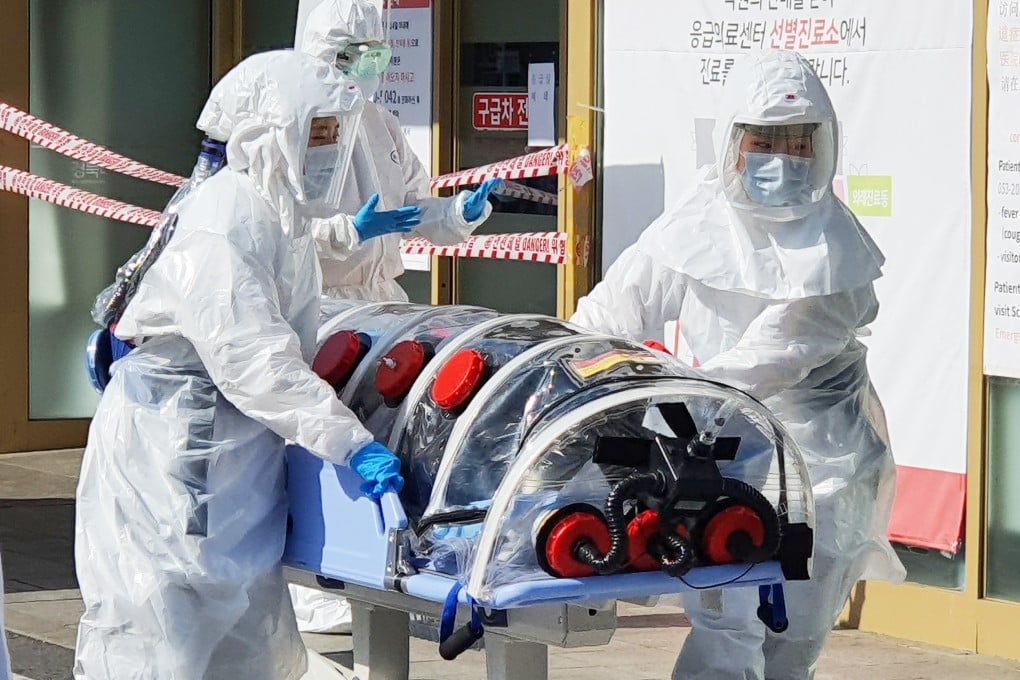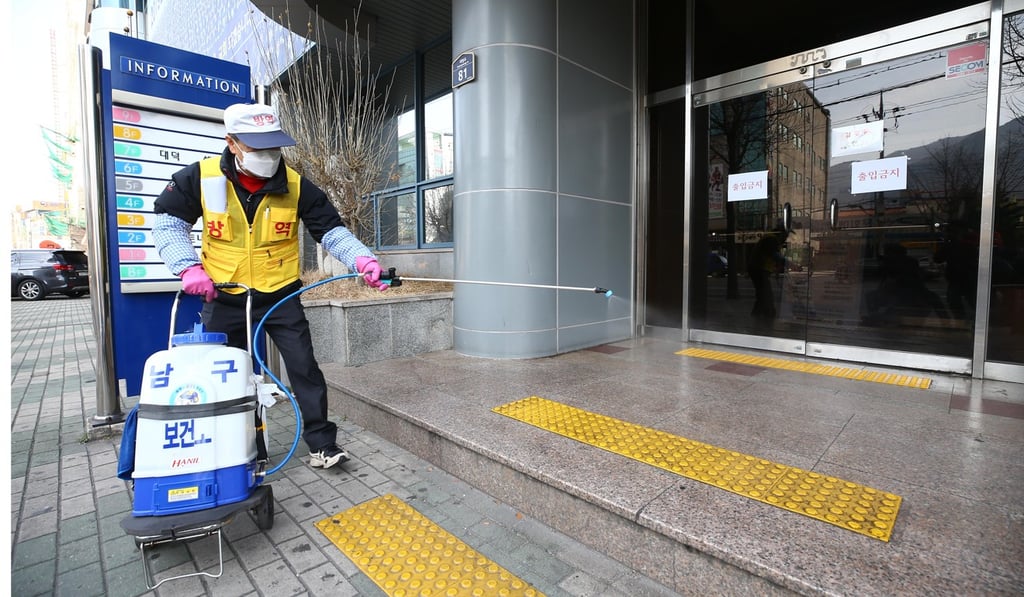Advertisement
Coronavirus: as 15 cases linked to Daegu church cluster, South Korea warns over mass gatherings
- South Korea has reported 20 fresh coronavirus cases, most of which are linked to the Daegu branch of the controversial Shincheonji Church of Jesus
- Officials say worshippers come into close contact with others at packed church services, and people should avoid such gatherings
Reading Time:3 minutes
Why you can trust SCMP

South Korea confirmed five more worshippers of an evangelical church had tested positive for the new coronavirus on Wednesday, bringing the number of infections from the Daegu church cluster to 15 as the country’s total number of cases rose to 51.
The 15 patients include a 61-year-old woman who was diagnosed as the country’s 31st case on Tuesday and 14 others who came in close contact with her at the Daegu branch of the Shincheonji Church of Jesus, a controversial religious movement known for its aggressive evangelical methods. Another person she later met in hospital also tested positive.
The woman attended four prayer sessions at the church in Daegu City, 300km southeast of Seoul.
Advertisement

Authorities have launched painstaking efforts to trace other congregants at the church amid concerns that the church may become a major site for the spread of the highly contagious virus.
Advertisement
“We’ve dispatched a special team of experts to Daegu … We’re tracing the patient’s movements and contacts she made at the church,” said Jung Eun-keyong, head of the Korea Centres for Disease Control and Prevention (KCDC).
Advertisement
Select Voice
Select Speed
1.00x